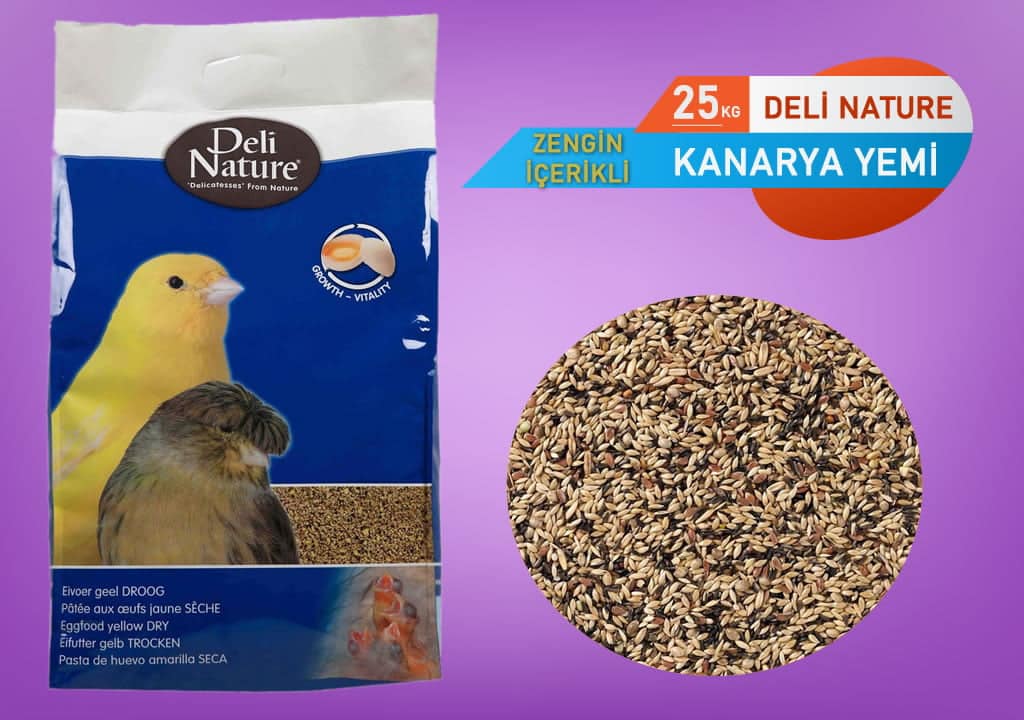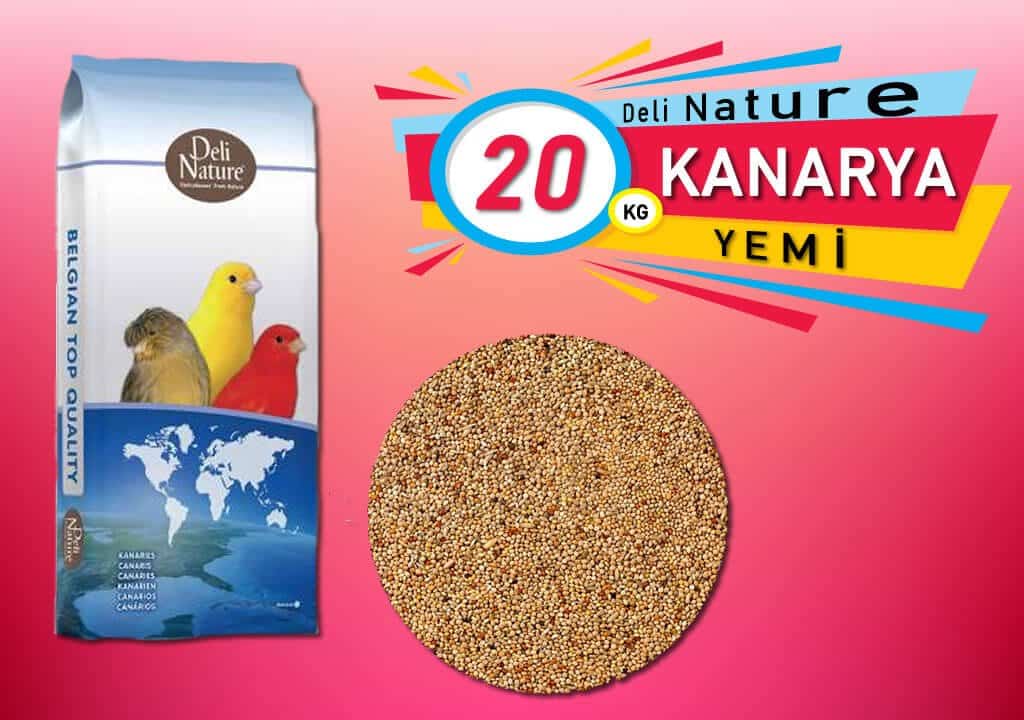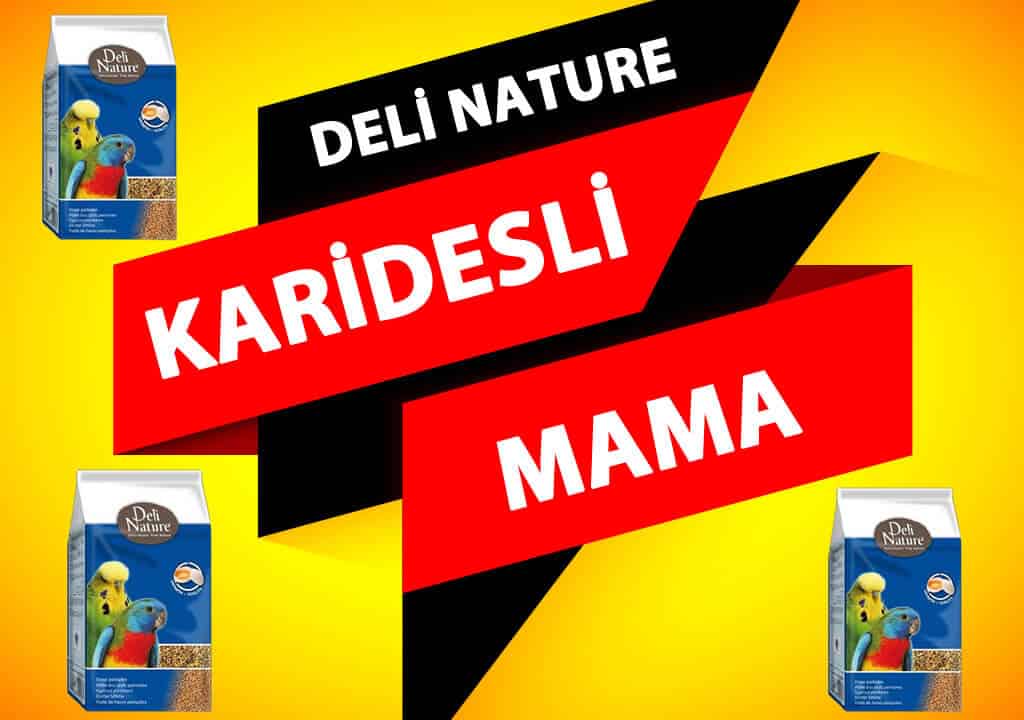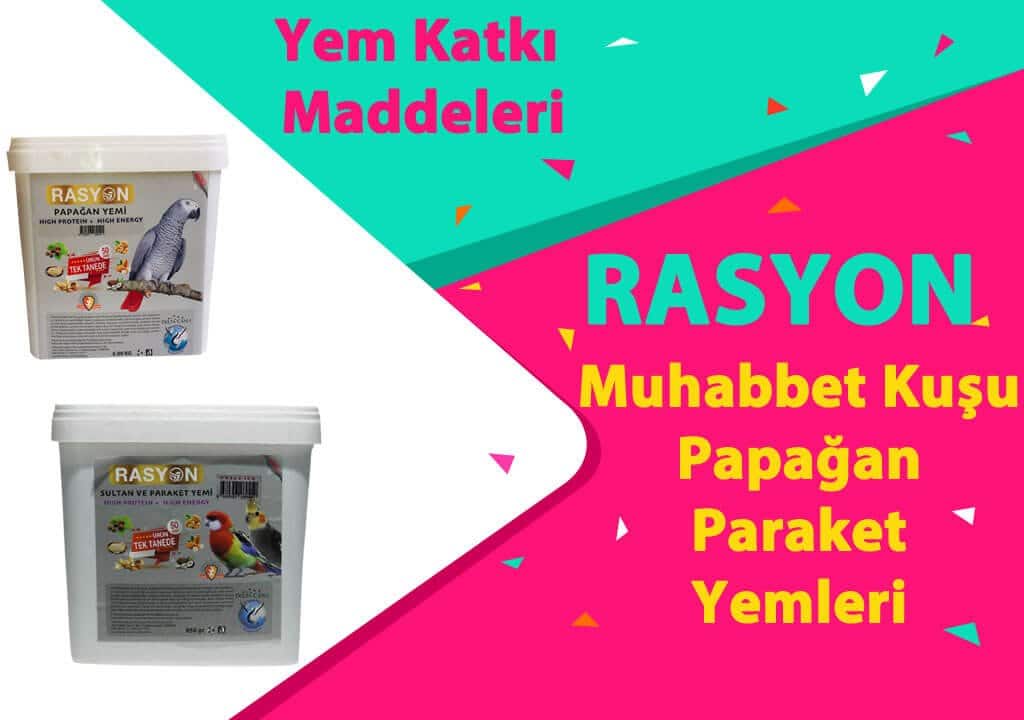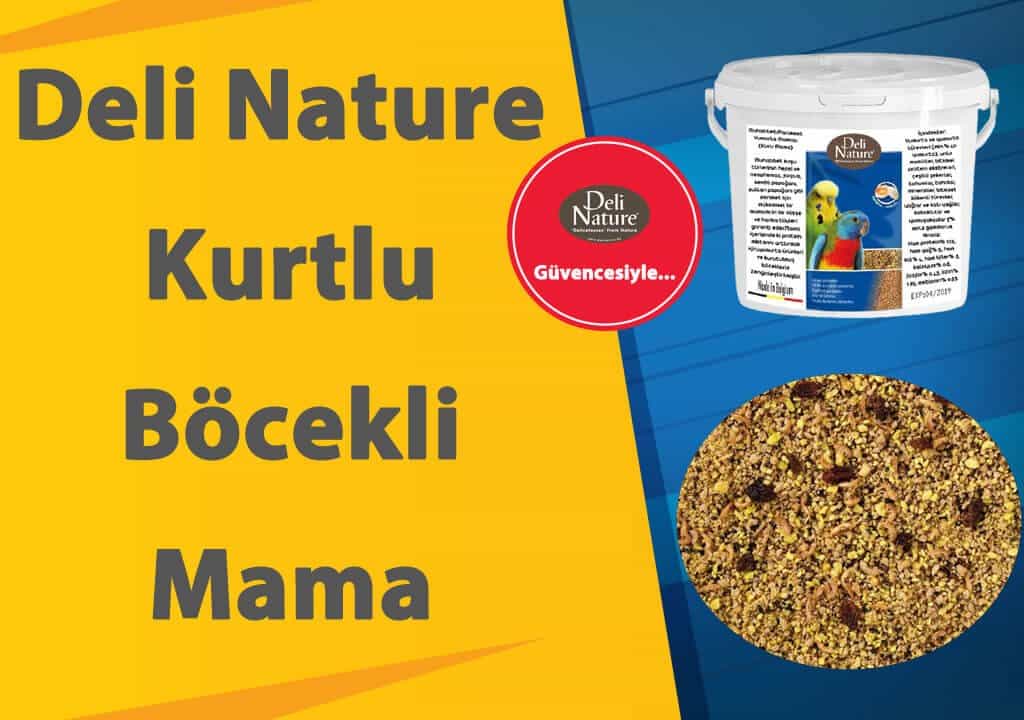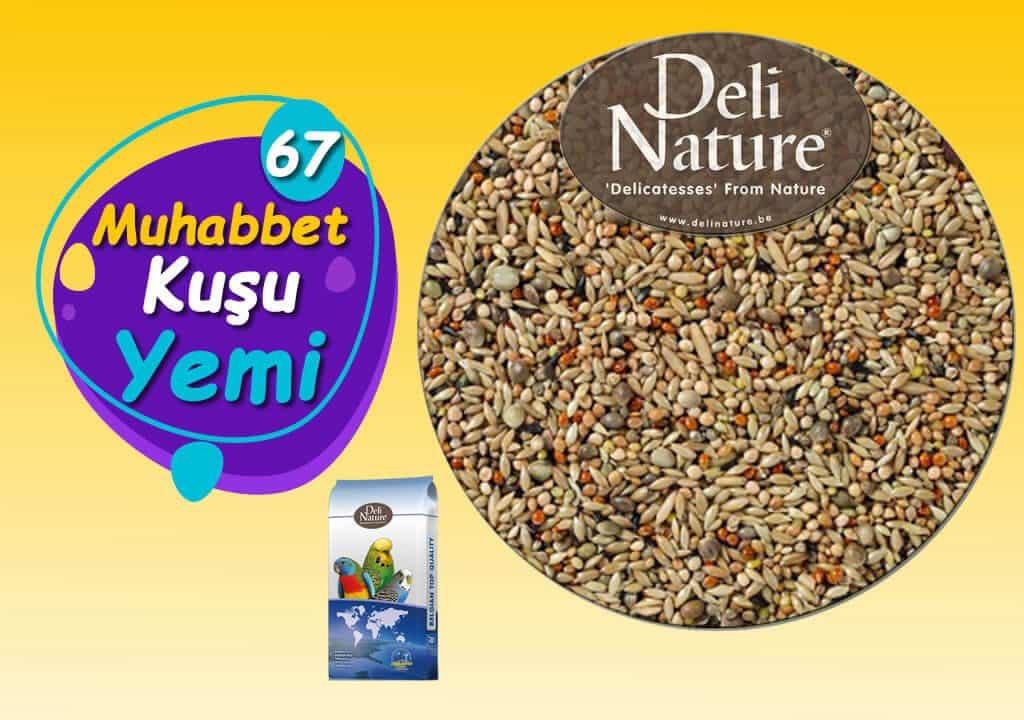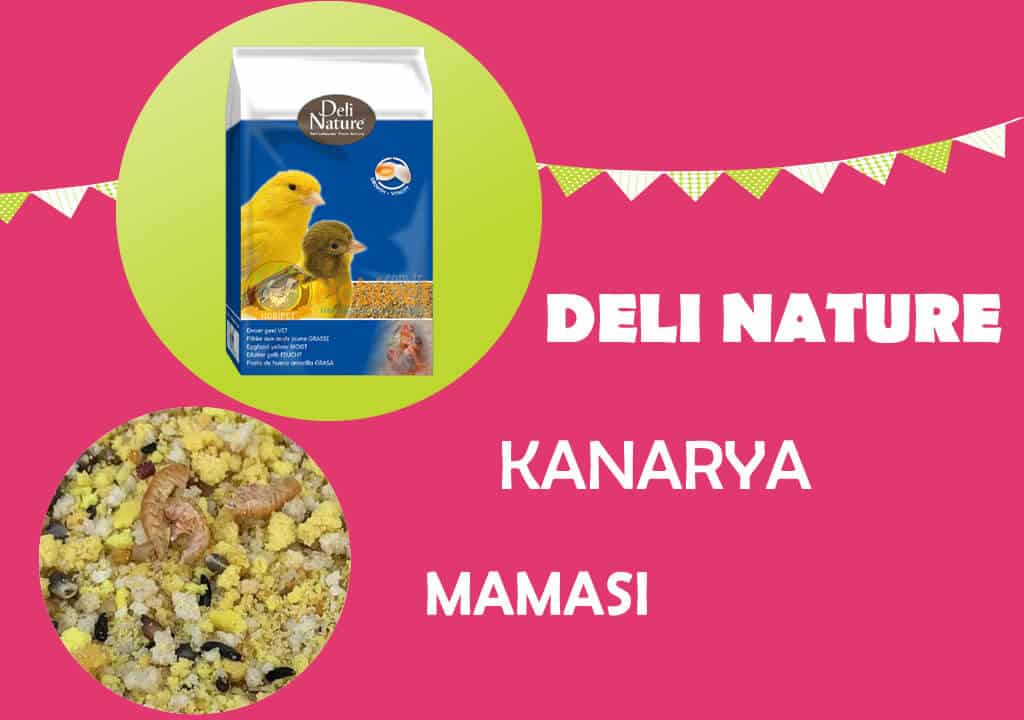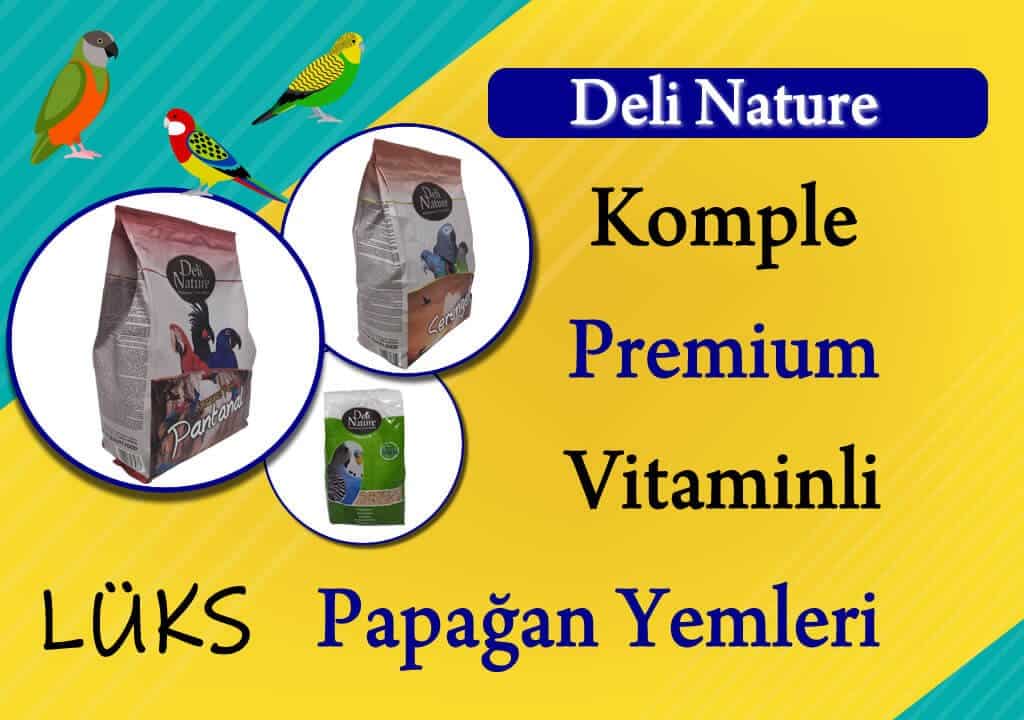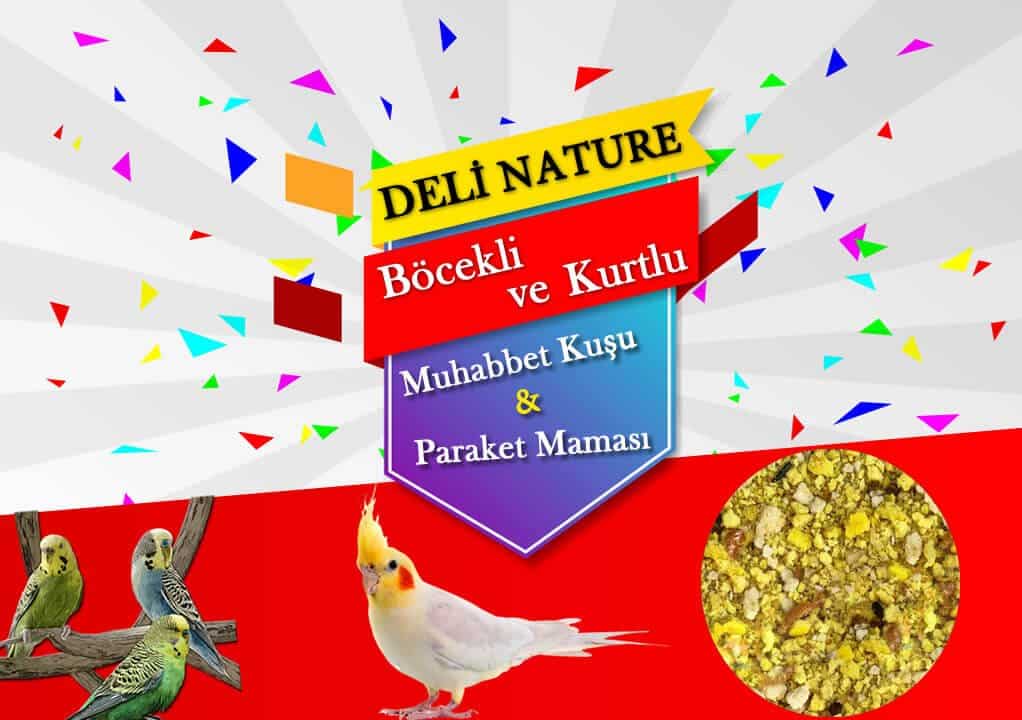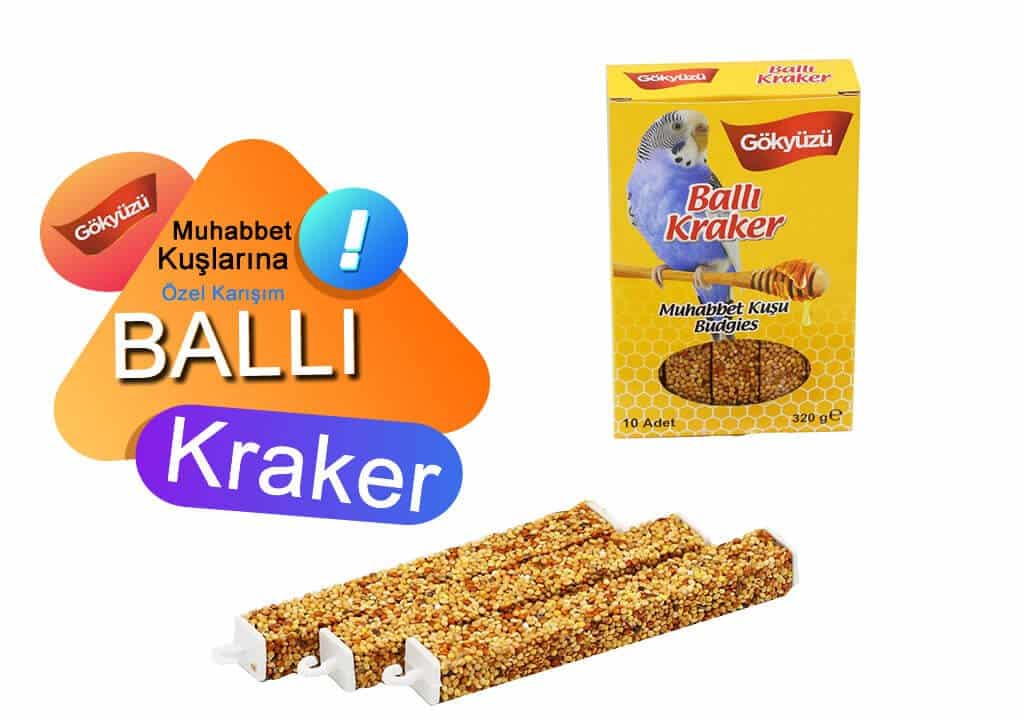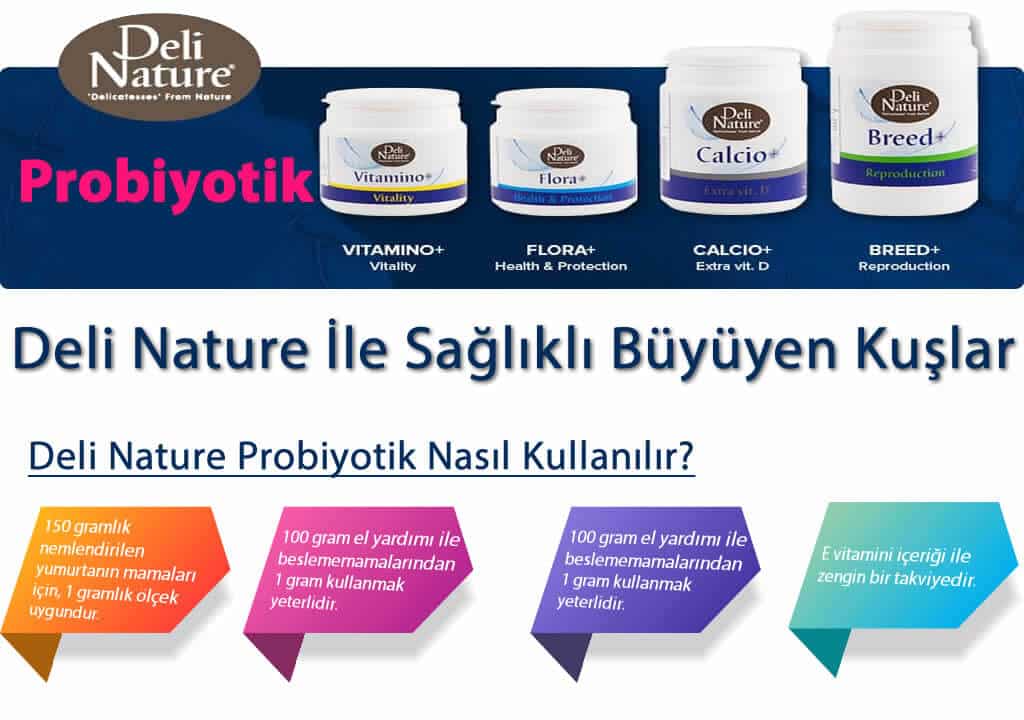Blog
Parrot Diet
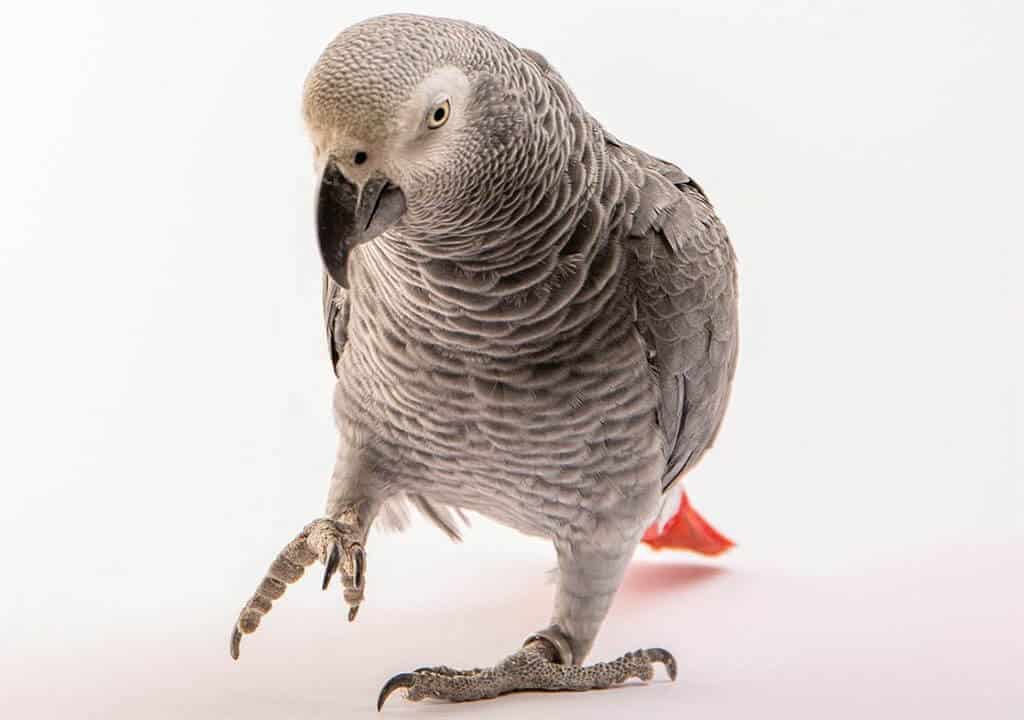
Parrot diet content, besides living a healthy life, is a factor that positively affects the physical appearance and life span of the parrot. Therefore, one type of diet should be avoided as much as possible. Parrots do not easily change their eating habits. It may take some time to get used to the new food. If the food to be acclimated is a dry substance such as seeds, it should also be left in a higher place in the cage. Parrots eat high-level bait with higher priority. Even if she does not eat, this new bait should remain in the cage for a while. This period may take up to a month. Fresh foods such as vegetables and fruits should be discussed separately from dry foods and should be changed every day if not eaten. Because mold fungus and bacteria grow rapidly on food items that remain wet. For this reason, the duration of these foods in the cage should not exceed 24 hours, and at the end of this period, they must be replaced with new and fresh ones.
In general, food hygiene is very important in parrots as in all living things. The source of most infections in the body is microbes contaminated with food taken orally. For this reason, the more we pay attention to the cleaning rules, the more we will prevent the parrot from getting infected.
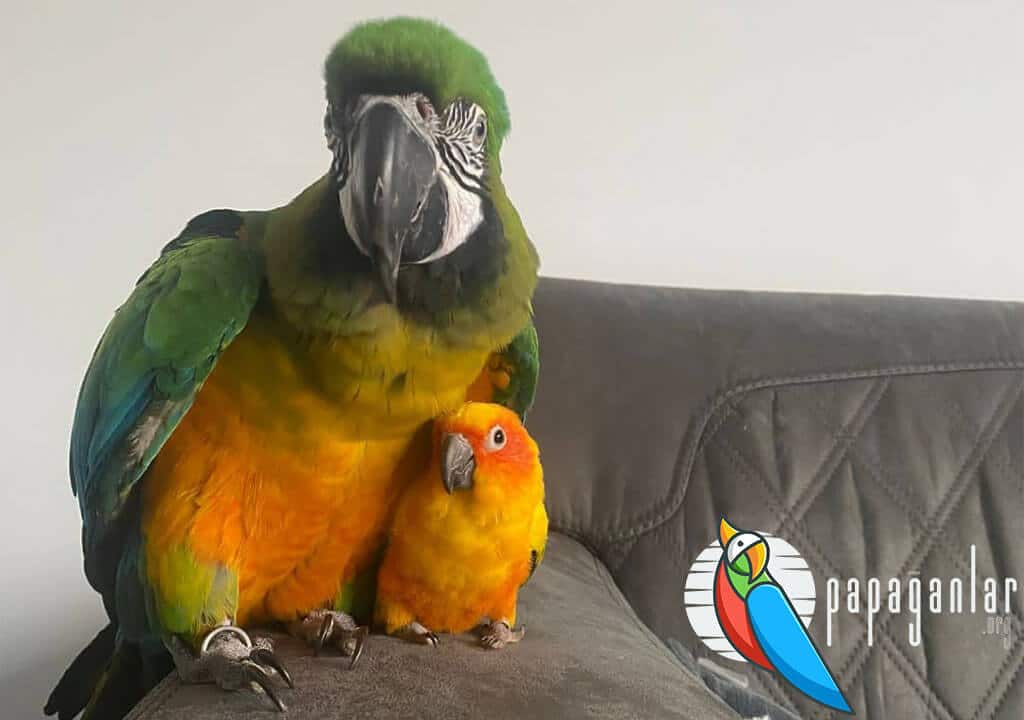
The most important rule to consider when buying dry foodstuffs (raw sunflower seeds, peanuts, etc.) is to buy ready-made and sterilized packages, if possible, untouched. Expiry dates should be checked on these packages. Since dry foods sold in the open are likely to come into contact with dust and soil, they can be a source of infection. Also, since exposed seeds are abundant, they can be a source of infection. In addition, rats abound in areas where seeds are plentiful in the open. They spread germs by defecating on them while eating the food. The parrot that eats it can get an infection.
Another mold and other fungi seen in open food. These occur especially in foods that have been wet or moist for a long time. Besides spoiling the nutritional quality of the food, it can harm the parrot as a source of infection.
Another harmful substance that can be found in dry foods is aflatoxin. This substance, which is harmful to all living things, accumulates especially in the liver. It has cancer-causing properties.
The fruits and vegetables to be given must be fresh. Before giving, it must be washed with plenty of water to remove harmful substances. Some authors tend to peel the fruits and remove the harmful substances completely. When moving from one fruit or vegetable to another, sudden changes should be avoided so that the digestive system gets used to it.
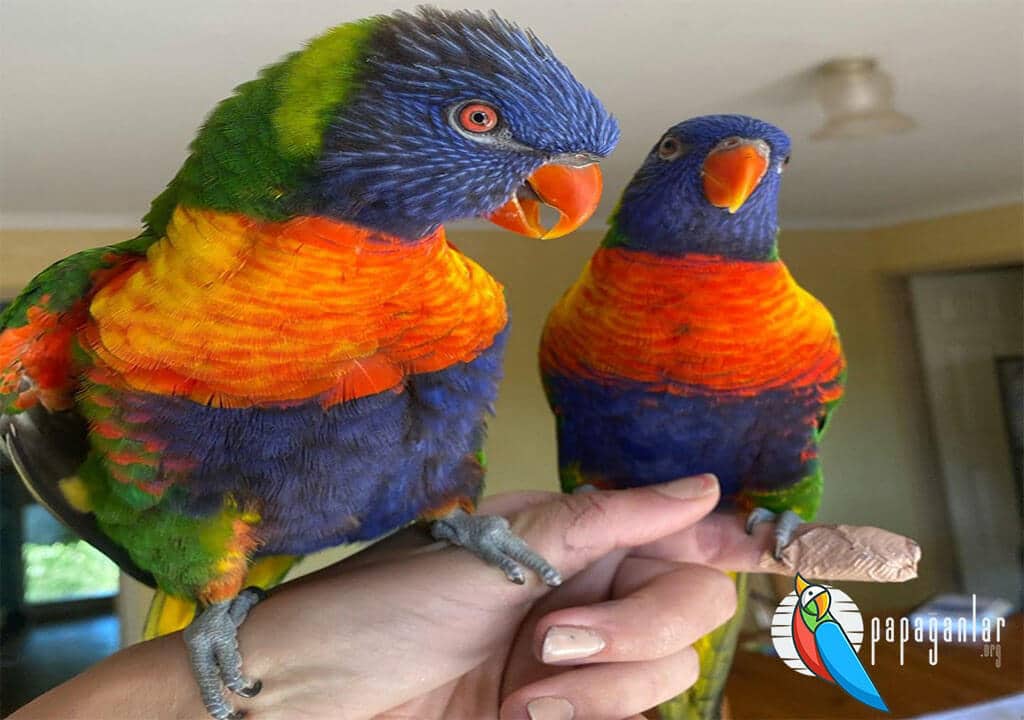
Ensuring the Parrot’s Nutritional Balance
The variety of the diet you will give your parrot is as important as its content. The parts that cannot be provided with the diet or that will be provided at an insufficient level must be given externally. Parrot pellets, which you can easily find in pet stores, also help to eliminate some of the deficiencies in a balanced diet.
The generally accepted rule is that 40% of the diet content of parrots should be sunflower seeds, peanuts, corn, etc. It consists of dry foods and 60% of it consists of fresh fruits and vegetables. Parrot owners take the easy way out, and almost all of their nutrition is provided with seed-based dry foods. These people complain that although they give fruit and vegetables, the parrots do not eat it. If you do not insist on it, the parrot will get used to completely dry food over time. It is very difficult to gain the habit of eating fresh fruits and vegetables again. Parrots, who consume mostly fruit in their natural life, deteriorate their health and become short-lived as a result of uniform feeding in the cage environment. Even if the ideal ratio of dry and wet foods is achieved, one should always try to eat fruits and vegetables.
Accustoming the parrot to the new food
It is very difficult for parrots to get used to the new food. Cockatoo parrots, in particular, are very conservative in changing their eating habits. The following technique can be used for the transition to the new food.
- New food is introduced early in the morning and given throughout the day. The old food is given for 15 minutes between morning and noon and in the evening.
- The new food is placed higher in the cage than other foods. Parrots tend to eat high food.
- If a commercial food is to be started, it is mixed with seeds. The amount of seeds is gradually reduced.
- The parrot is taken to a new environment. New food is scattered on the floor, especially around the water bowl.
- The new food is tried to be eaten by hand.
- The parrot is only given new food. After a while, she will get hungry and start to eat this food. It is allowed not to eat new food for 1-3 days and to lose no more than 10% of its weight. If she does not eat within this time, stale food is given. Then the new food is tried again. This application should only be done under veterinary control.
Balanced Dietary Content for Parrot
An ideal daily diet content should be as follows;
- Quality proteins: 20%
- Vegetables containing vitamin A: 30%
- Other fruits and vegetables: 20%
- Cereals and cereal products: 20%
- Carbohydrates: 10%
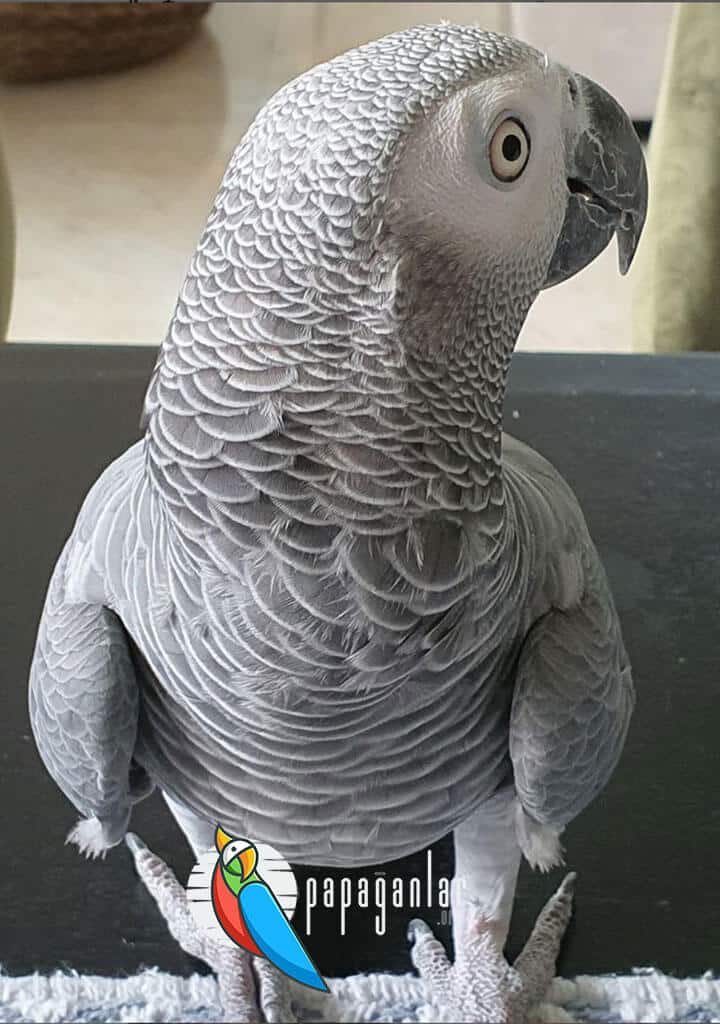
Quality Proteins for Parrots
Proteins, made up of amino acids, are the basic building blocks of the body. There are 20 amino acids. Each of these amino acids has separate functions for the body. None of these substances are created by the body, they must be taken from the outside.
Protein-containing foods are primarily animal foods such as meat and milk. Grain products contain some of the amino acids, while animal foods contain all 20 amino acids.
We can list the foods containing high quality protein that can be given to parrots as follows; Fat-free yoghurt, low-fat or low-fat unsalted cheese, boiled eggs, well-cooked white chicken, fish, lean turkey and red meat, as well as various seed and grain mixtures, and creatures such as mealworms and fruitworms, small grasshoppers are very good for parrots. It is a good protein store. But it is not always possible to find them. Commercially available pressed commercial worms and parrot pellets also contain protein.
Commercial foods prepared for cats and dogs are not suitable for parrots. While preparing, the protein / fat ratio is formulated according to parrots. These foods contain high levels of many minerals, especially iron. Also, the digestive systems of mammals and parrots are not the same. Bacteria normally present in the gut (flora bacteria) differ in mammals and parrots. Therefore, since bacteria that are not harmful to mammals are not controlled in this type of food, serious digestive system infection may be encountered when given to parrots.
Vegetables Containing Vitamin A
Vegetables with a high content of vitamin A are one of the nutrients that are important in the life of parrots. Although there are fruits that contain high levels of vitamin A, the vitamin value here is lower than the vitamin found in vegetables. Vitamin A is very important for skin and coat health. It also provides good vision. It helps in the fight against infections by increasing the strength of the mucous membranes in the body.
Vitamin A is found in the flesh of fruits and vegetables in the form of a high carotene content. This carotene substance is converted to vitamin A in vitamin A in the digestive tract. Since vegetables are digested more easily if they are cooked, they benefit more from the carotene they contain, hence the vitamin A. However, excessive cooking causes the destruction of its vitamin content.
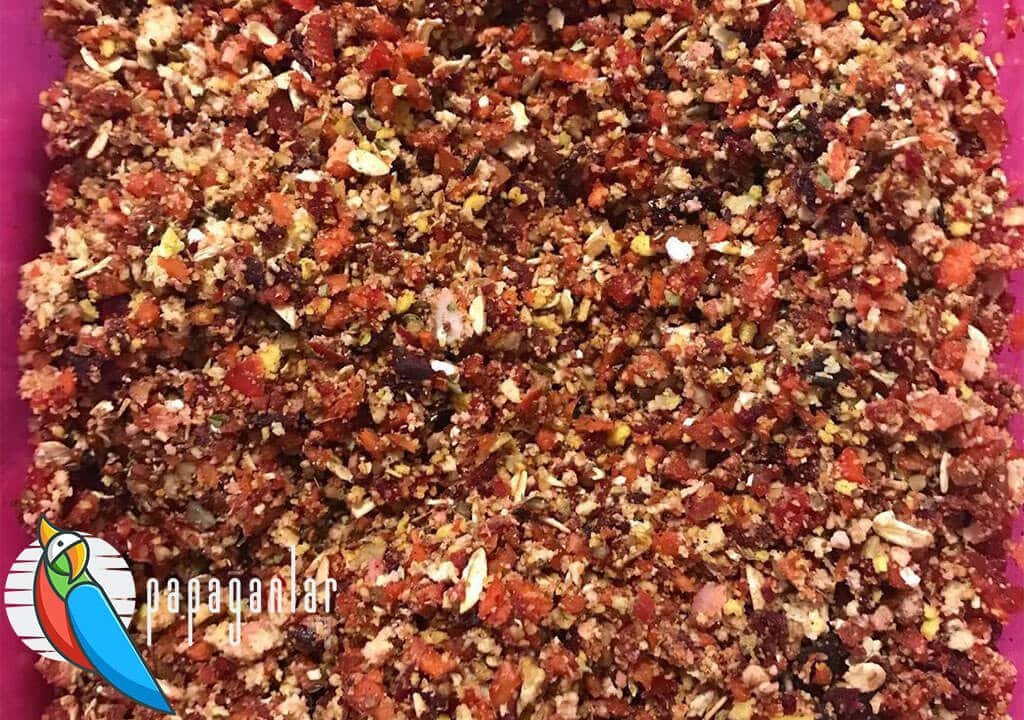
Green vegetables: Spinach, turnips, kale, broccoli, cress, arugula, chard, alfalfa, green peppers, chicory, dandelion, zucchini. Foods containing oxalic acid, such as spinach, should be given sparingly as they block calcium absorption from the body.
Yellow or red vegetables: Carrots, Jerusalem artichokes, paprika, acorns, walnuts, pumpkin.
Fruits containing sufficient amount of vitamin A: Peach, nectar, apricot, dates, cherries. It is available in the form of retinol.
Other fruits and vegetables: It is beneficial to give the following products to the parrot so that vitamins, minerals, enzymes and elements other than vitamin A can be taken into the body. These; corn, peas, green beans, cauliflower, brussels sprouts, leeks, artichokes, squash, okra, asparagus, tomatoes, potatoes, apples, grapes, bananas, blackberries, oranges, tangerines, plums, figs, pineapple, kiwi, pomegranate, melon, watermelon, strawberry etc.
Among vegetables, mushrooms have no place in the diet of parrots. Also, peach, cherry, apricot, etc. fruit seeds should not be given either.
Grain and Cereal Products: Bread types made from whole grains, energy bars, white and brown rice, wheat, corn, hemp, oats, amaranth, as well as oil-free, salt-free, sugar-free chips and crackers.
Carbohydrates: Fruits, cereals, bread, pasta, rice porridge, sesame, corn, beans, peas, walnuts, sunflower seeds, pumpkin seeds. The last three contain a sufficient amount of essential oil for the parrot.
Seeds and Kernels: It has an important place in the nutrition of parrots. These substances, which are given raw or in sprouted form, enable the parrot to grow and maintain its health with the many vitamins, minerals, essential fatty acids and amino acids they contain. If given sprouted, the content of various enzymes and vitamin C is increased. In addition, the seeds have a protective effect against infections by strengthening the body’s defense system. It is high in vitamin A, vitamin E, and B vitamins. With the natural antioxidants it contains, it increases the body’s resistance and makes it strong against diseases. The seeds contain calcium, magnesium, manganese, iron, zinc, copper, selenium, chromium, silicon, potassium and phosphorus.
You can also do the job of germinating the seeds. Put enough water to cover the seeds on the seeds placed in a bowl. After 24 hours, the seeds are filtered and arranged in a single row in a bowl with a lid. After 48 hours, sprouting was achieved at the level to be given to the parrot.

Example Seed Mixing Ratios:
- Black and white mixed sunflower: 75%
- Peanuts in shell: 5%
- Peanuts without shell: 4%
- Corn: 4%
- Wheat: 4%
- Pumpkin seeds: 4%
- Canary food: 3%
- Cannabis: 1%
Additional Vitamins to be Given
In the case of providing a balanced diet, there is no need to give additional substances from the outside. But no matter how careful you are with your parrot’s diet, it may not consume the nutrients you give it in the required amount. For this reason, it would be a good behavior in terms of health to give some vitamins and minerals additionally from outside in order to prevent any deficiency.
Vitamin A
It is a vitamin that plays a role in many body functions, especially the eye, skin, reproductive and defense system. Its deficiency causes clinical symptoms such as allergic reactions, respiratory distress, sneezing, increased tendency to infections, dry and scaly skin, and hormonal imbalance. Lung, trachea, digestive system and skin infections are increased. It is an essential vitamin for the growth of the body and the repair of tissues. Fish liver oil is the most important source of vitamin A. Omega 3 fatty acids it contains are very important especially for skin health.
Synthetic form of vitamin A can cause poisoning by accumulating in liver and body fat if given in excess. It should be used with caution.
Carotene in green vegetables is converted to vitamin A in the digestive system in the body. In diseases such as diabetes, low blood thyroid hormone, liver dysfunction, vitamin A should be supplemented externally, since this conversion process cannot be sufficient.
Cod liver is rich in vitamins A and D. There is a liquid form in capsules in the market. You can meet the parrot’s need for this vitamin by puncturing a capsule 1-2 times a week and pouring the oil on the core.
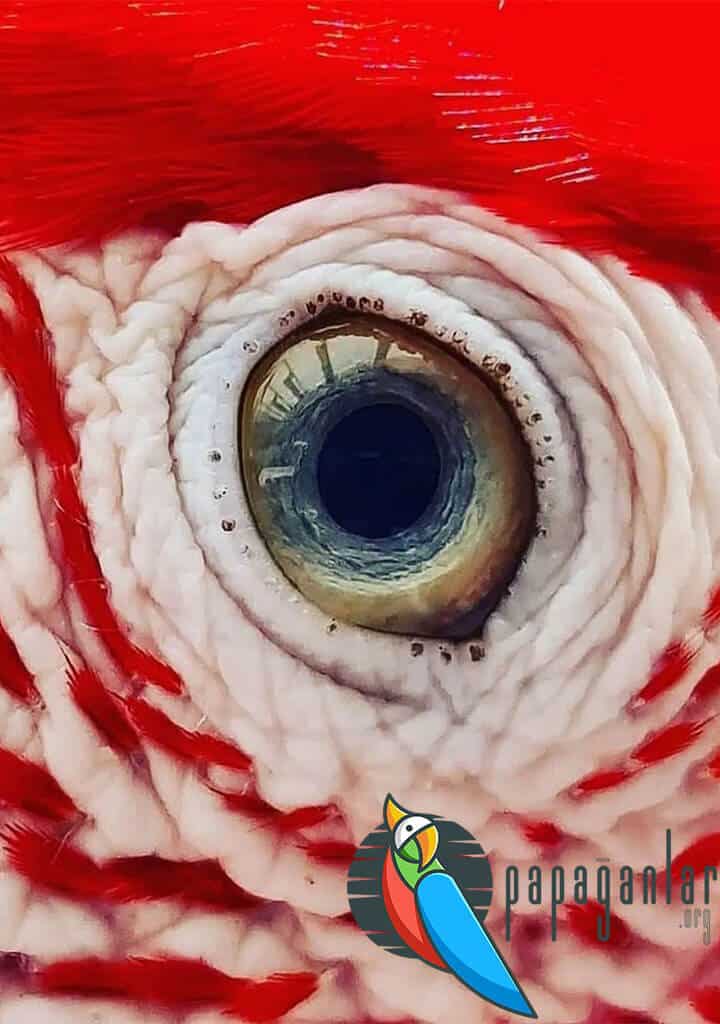
Vitamin E
In addition to helping to store vitamin A in the body, it has a great role in increasing reproduction and resistance to diseases. Its deficiency is also seen in chronic inflammatory skin diseases. Wheat oil is an excellent source of vitamin E.
B Vitamins Complex
It is necessary for the functions of the skin, eyes, mouth, liver, heart, defense, digestion and nervous system. It is more suitable to be taken with natural foods. All seeds and kernels, especially wheat, sunflower and corn, egg yolk and all green leafy vegetables contain high levels of B vitamins.
There are various opinions about the amount of vitamins to be given externally. Considering the body volume of gray parrots, formulas produced in powder form and containing several vitamins should be used. It should be mixed with water and should be changed every day. 30 ml of this formula. Add 1 gram (¼ teaspoon) to water. Care should be taken to ensure that the water does not receive direct sunlight. Vitamins are quickly lost in daylight.
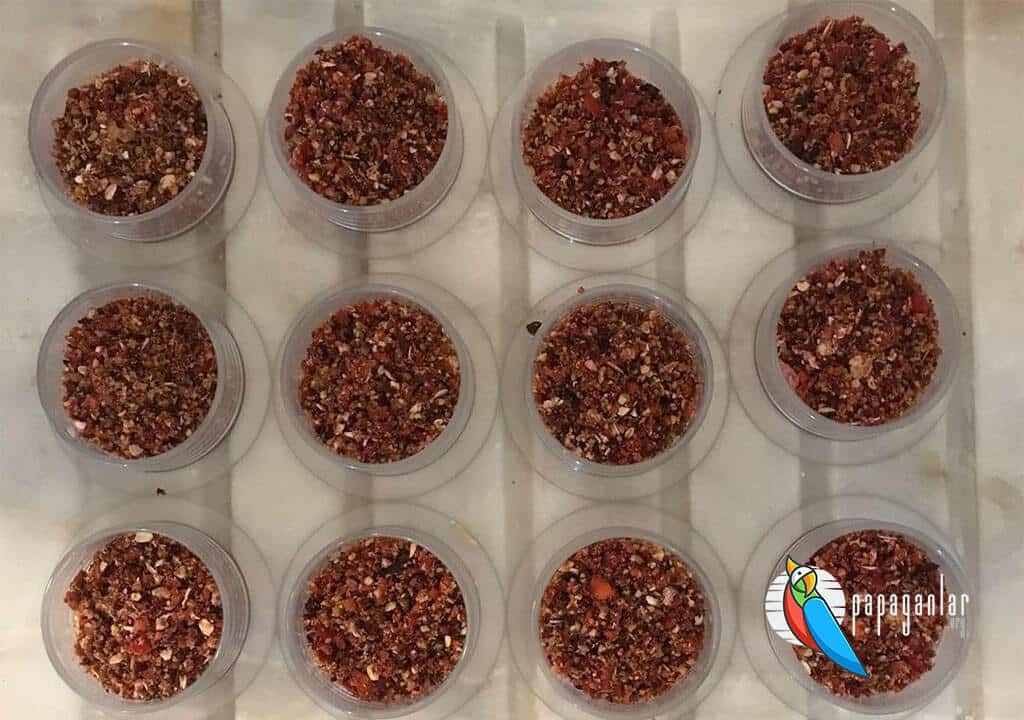
Sample Vitamin Mixture
Every 100 grams;
- Vitamin A (retinol): 500,000 IU
- Vitamin D3: 50,000 IU
- Vitamin E: 450mg.
- Vitamin C: 1100mg.
- Vitamin B1 (thiamine): 250 mg.
- Vitamin B2 (riboflavin): 200 mg.
- Vitamin B6 (pyridoxine): 110 mg.
- Vitamin B12: 0.5 mg.
- Calcium: 400mg.
- Biotin: 5 mg.
- Nicotinic Acid: 2000 mg.
- Folic Acid: 60 mg.
- Vitamin K: 150mg.
The Importance of Calcium for the Parrot
It is a mineral that is necessary for the strengthening of the bone structure. Since the amount taken with food will not be enough for the parrot, it should be given externally. Although cuttlefish bone is a good source of calcium, it is not suitable for large parrots. They break as soon as you give them. You can get calcium by putting some boiled egg shell on its core. In addition, with the mineral and energy blocks you will attach to the cage, you will meet many mineral needs besides calcium. Thus, you also provide the need for sandstone, which is necessary for the parrots to grind the seed grains in the stomach.
Benefits of Drinking Water for Parrots
Like all living things, parrots need clean water to lead a healthy life. By changing the water 1-2 times a day, the reproduction of microbes is prevented. By adding ¼ of mineral water to the water, the parrot’s mineral needs can be met.




